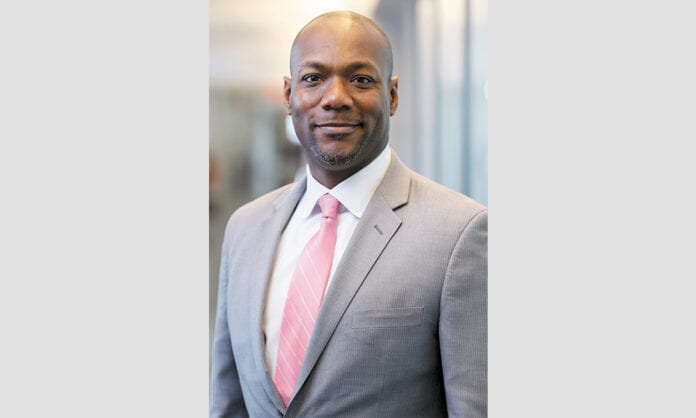I didn’t like Larry Bird and the Boston Celtics when I was growing up in the 1980s. While I also disliked the “Bad Boy” Pistons, race was at the center of my disdain for Bird. It wasn’t that I disliked him because he was white; I disliked what white people said about Bird in comparison to Black players, especially Magic Johnson. Bird was nearly always described as being a “smart player” or one who had a “high basketball IQ.” He played “from the neck up.” He was “hardworking” as opposed to being “athletically gifted.”
By contrast, Magic Johnson was “a great athlete” who was blessed with an abundance of “physical abilities.” He was a “natural talent.” He probably practiced a fair amount, but his “gifts” obviated the need to be a gym rat. In short, Johnson was in many ways the antithesis of Bird. The difference in the descriptions of the rivals was as obvious as black and white. This was a frequent topic among Black men in my family, at church, in barbershops, and elsewhere.
In watching their historic matchups, the picture of the predominately white Celtics was quite a contrast to the predominantly Black Lakers. I recall a television interview during those years wherein one Boston fan said something to the effect of, “I don’t want to make this a racial thing, but we (i.e., white people) have the best player in the world right now.” It’s fair to say that I didn’t know very many Black fans of the Celtics or very many white fans of the Lakers when I was coming of age.
Times change. In the last twenty-five years or so I have grown to greatly admire Bird as a player. He was a fierce competitor. He was incredibly clutch. And, equally as important to me, he is arguably the greatest trash talker of all time. Further, I haven’t found evidence that Bird bought into the anti-Black noise that surrounded his tenure in Boston. In fact, he has famously said that he was “offended” when a white player guarded him. Much like Elvis, Bird appears to be an unwilling pawn in America’s never-ending racial chess match.
To state the obvious, race has always affected and infected sports, whether we’re talking about Jim Thorpe, Jack Johnson, Babe Ruth, Joe Louis, Muhammad Ali or any number of other athletes. Consider the horribly racist treatment that Celtics legend Bill Russell endured from Boston fans — even as he won 11 NBA championships for them. Yet, some people will read this column and be angry that I have addressed racism rather than being upset at the racism itself. As my fellow Hoosier John Mellencamp sings, “Ain’t that America…”
Today, the WNBA’s Caitlin Clark has become the latest “Great White Hope,” much like boxing’s Gerry Cooney or the NBA’s Nikola Jokic. To her eternal credit, Clark wants no part of that mantle. We saw that two years ago during the NCAA tournament when Clark’s Iowa Hawkeyes took on Angel Reese’s LSU Tigers in the title game. Near the end of the game, which the Tigers won, Reese taunted Clark with John Cena’s “You Can’t See Me” gesture — something that Clark had done to other players on multiple occasions. When the right wing tried to turn the incident into a major racial issue, Clark’s response essentially told them to fly away.
I love Clark’s game. I love her focus. I love her swagger and trash talking. And I love her refusal to be a racial pawn. Thus, while her entry into the WNBA has not been what I and the rest of her fans would have hoped, my enthusiasm for her has not dimmed. I also love Angel Reese. I love her focus. I love her swagger and trash talking. And I love the fact that she is a proud Black woman. Is it a crime to hope that both of them have long and successful careers?
Obviously, the issue of race that plagued the Johnson/Bird era is still here. For example, literally until last week all the WNBA players who have shoe deals were white. That is because of the perceived marketability of white women as opposed to Black women. Until racism is no longer a problem in American society — which is a reality that I highly doubt will ever come to pass — racism related to sports will be a problem. Sin has a way of enduring.
Of course, I am fully aware that some Black folks will have a problem with my apologia for a white woman. I get that. As Bernie Mac said, “I’ve been Black a long time.” But I don’t want to make the same mistake with Clark that I did with Bird — the latter of whom openly acknowledged the racism that Bill Russell experienced in Boston.
In the end, I have never felt diminished by lifting up another person. Frankly, most of the people who I have exalted are African American. That’s because we are not nearly as heralded in our homeland as are our white compatriots. However, I strive to give credit where credit is due. And credit is certainly due to Caitlin Clark.
Oh yeah. Go Fever. Go Pacers.




